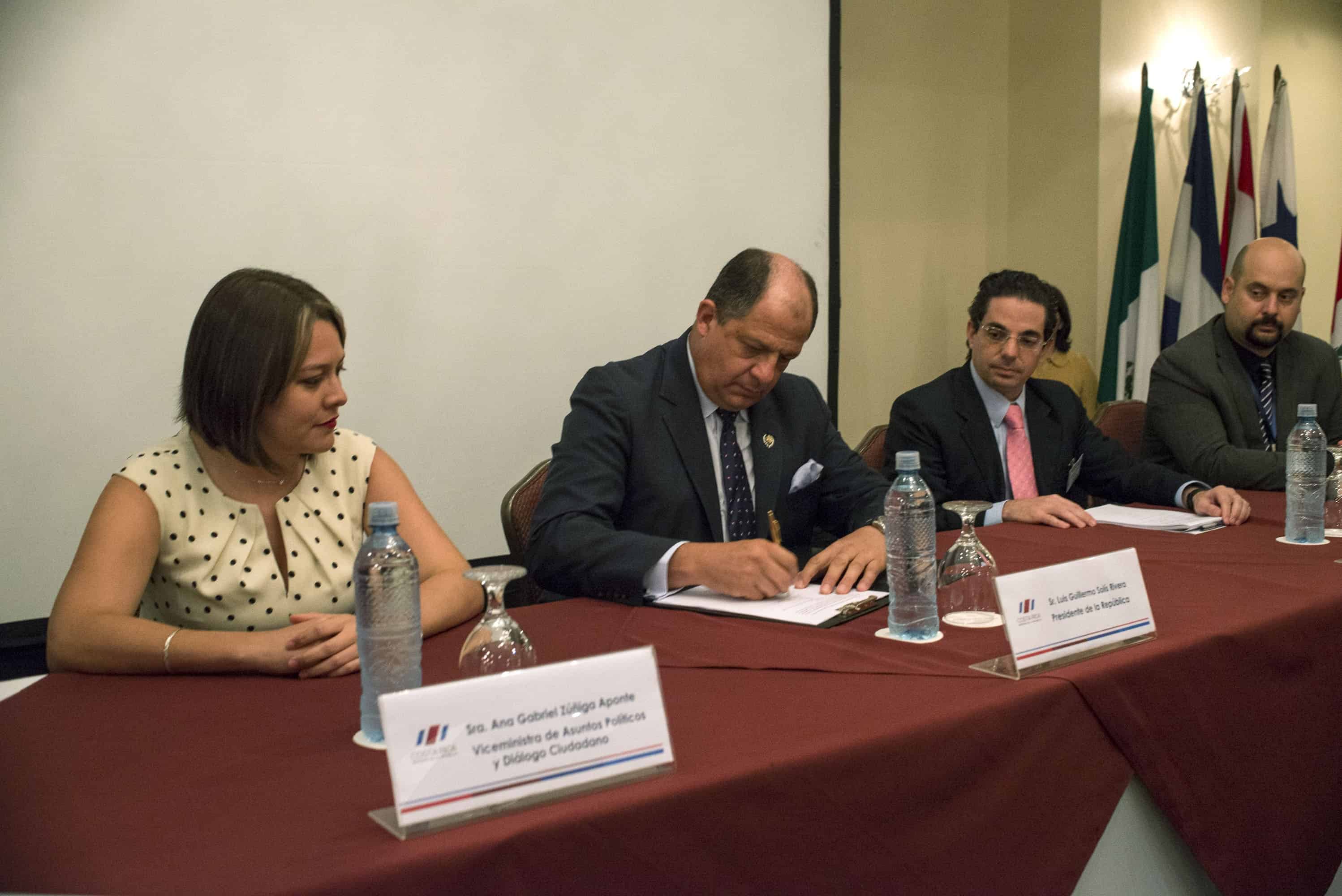President Luis Guillermo Solís signed on Friday a presidential decree authorizing the National Strategy to Fight against Money Laundering and Terrorist Financing. The strategy was presented Thursday by his administration during the opening of the two-day XXXI Plenary Meeting of the Financial Action Task Force of Latin America (GAFILAT), held in San José.
“I want to once more ratify Costa Rica’s opinion in the sense that those ills — organized crime, terrorism — must be fought off in all ways possible by the international community,” the president said.
“And that leads to increasing levels of coordination and collective action, such as those you promote, and I’m particularly pleased by the attention GAFILAT puts on financing and money laundering, which are the foundation [those crimes] are nurtured by.”
“I believe there’s a necessary deepening of the activities against those ills, universal ills … where the financial issue takes on a leading role,” the president remarked.
Nevertheless, “we have much to do on the issues of terrorism … organized crime in all its forms, with drug trafficking, of course, as one of the most perverse and one of the closest to the Latin American experience,” he pointed out.
Solís admitted, however, that “major advances have been made, major progress has been achieved,” adding that countries have at their disposal organizations such as GAFILAT, “methodologies for common action, harmonized public policies and political will translated into decrees and national legislation – such as the one I signed this afternoon.”
Among other points, the decree sets up an Inter-institutional Technical Committee to support coordination and planning of actions, by both the public and private sectors, aimed at preventing and combating money laundering and terrorism financing.
The National Strategy to Fight against Money Laundering and Terrorist Financing responds to the three components of GAFILAT’s Anti-Money Laundering and Counter-Terrorism Financing (AML/CTF) system: prevention, detection and intelligence, investigation and criminal justice, according to government officials.
The initiative’s main aim is to have its contents included “in state policies that strengthen the AML/CTF system.”
The strategy also seeks to “reinforce joint work and inter-institutional coordination, allowing progress toward adequate prevention, detection and repression” of both crimes, and “sets specific aims and actions for the three components of the Anti-Laundering System.”
The Financial Action Task Force of Latin America was born out of a similar body that included nine South American countries, founded in December 2000 to combat money laundering. After the 9/11 terrorist attacks in the United States, the group broadened its reach, to include terrorism financing.
GAFILAT now counts 16 Latin American nations as members. It functions under the umbrella of the global Financial Action Task Force (FATF) created in 1989 by the Group of 7 to fight money laundering on a global scale.






